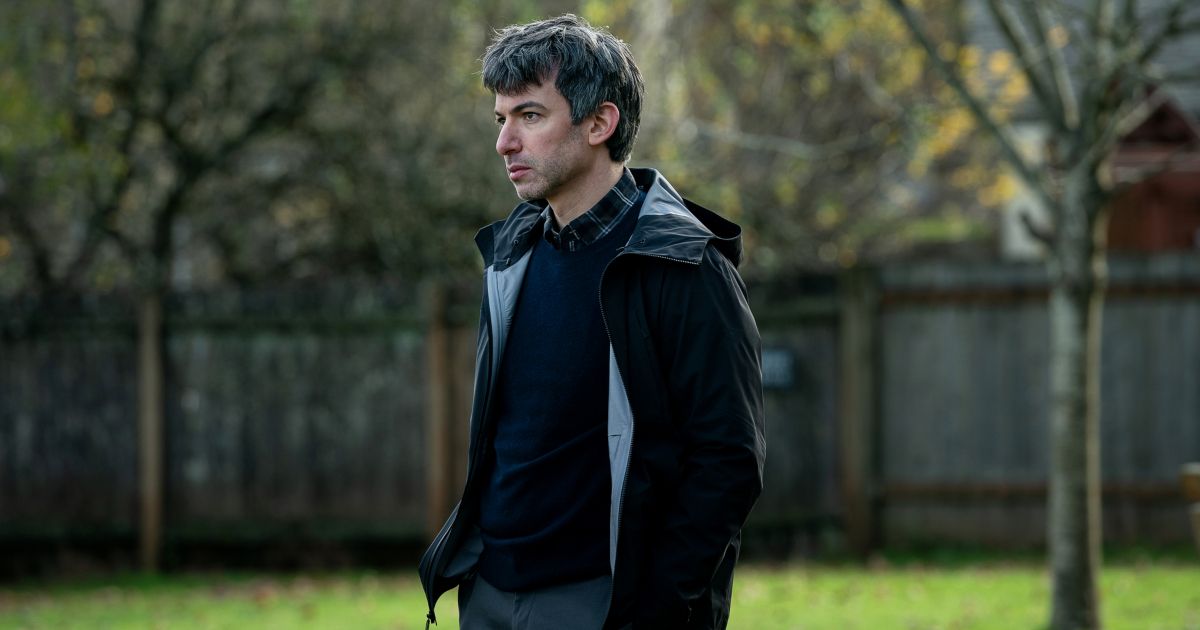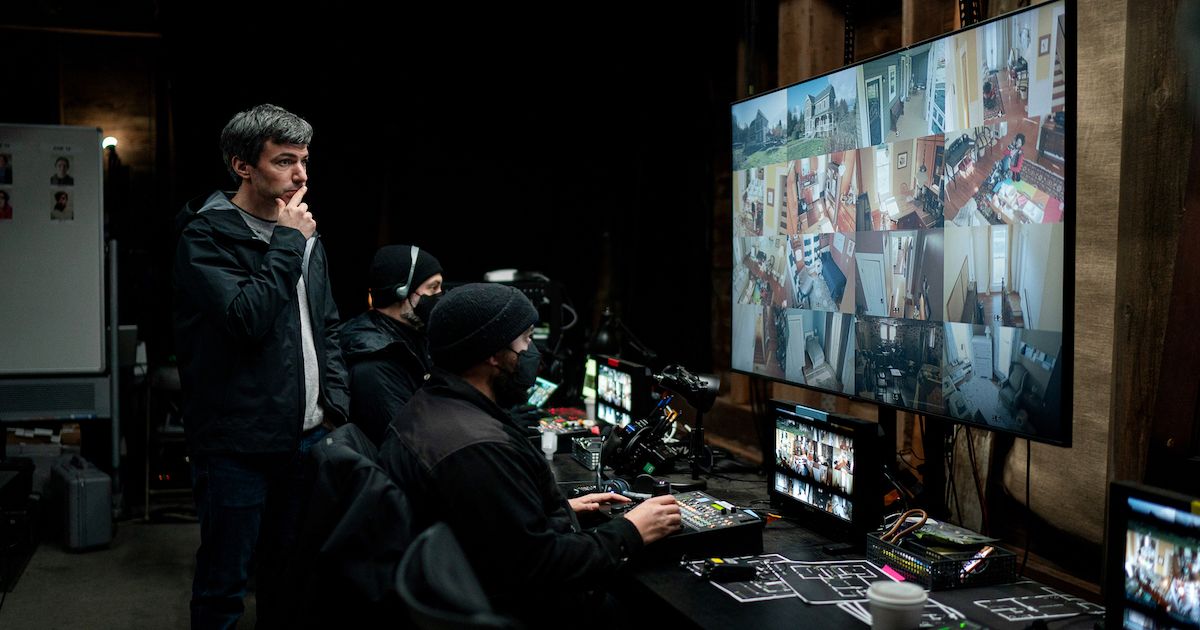Spoiler Alert: This article discusses the season finale of The Rehearsal.The mind-bending delirium of Nathan Fielder’s The Rehearsal has come to a temporary standstill after ending its abbreviated first season on HBO this past Friday. News had broken earlier in the day that the docu-comedy series had been renewed for a second season, and so fans will wait with equal parts dread and anticipation as to what the mad genius Fielder has in store for another, potentially longer run of episodes. The first six chapters of this saga were already so ambitious and out-there, that one can only imagine what The Rehearsal will be like with more money and resources poured into it.
Nonetheless, the amount of creative (and financial) freedom that HBO allowed Fielder in this first season is remarkable, whether it was essentially buying Nathan his own functioning bar on HBO's dime, or paying for a litany of child actors in four-hour shifts (due to labor laws) for weeks, seemingly 24/7. After Painting With John, How To With John Wilson, and The Rehearsal, nobody can say that HBO does not fully support the niche creative dreams of great artists.
The Brilliantly Troubling Season Finale of The Rehearsal
Fielder’s season finale proved a further blurring of the line between Nathan The Creator and Nathan The Character. Our lead’s vanity and myopic self-introspection have led to unexpected repercussions in the form of Remy, a child actor with whom Nathan worked in a pretend father-son dynamic. The six-year-old boy, who we learn does not have a real-life father, got so caught up in the role that he co-opted Nathan as his surrogate dad. Fielder spends the first part of the episode trying to distance himself from the child and create healthy boundaries; soon enough, however, he decides to embark on another rehearsal scheme – his new “primaries” being the real-life Remy and his mother, both unaware of the merry prankster’s ulterior motives.
Here is where the thus-far troublesome nature of Fielder’s approach reaches a fever pitch of potentially unethical proportions. Throughout his work, the creator has made a point of involving unsuspecting individuals and manipulating them to achieve desired outcomes. In this latest installment, Fielder sets his sights on the emotionally fragile child Remy and, in doing so, stretches many viewers' empathy past its limits.
The whole thing is icky and disturbing, and probably goes beyond the discomfort Nathan Fielder has subjected us to so far. At our most generous we could say that Fielder displays a casual recklessness toward the child actors; at our most pointedly fearful, we might say that he is actively manipulating these children and their families. There is much here to be mined, criticized, and questioned, and audiences have the right to be disgusted, and perhaps they should (even Nathan seems to be, questioning how he can even forgive himself).
Nathan Fielder and the Ethics of Entertainment
For some, there are no excuses for Fielder's behavior. However, those very people might still pay to see films directed by Roman Polanski (who pled guilty ro rape by use of drugs and sodomy of a minor, and then won the Best Director Oscar) and produced by Harvey Weinstein (enough said), and people still listen to R. Kelly. Fielder is obviously an innocent angel compared to these men, and to many viewers didn't really do anything wrong; after all, children without fathers tend to attach themselves to male influences who leave their lives all the time, from their mothers' boyfriends to teachers.
Obviously, then, the line between morality and entertainment are often blurred, and TV audiences will still watch more “conventional” reality programming that nonetheless involves a similar amount of manipulation and coercion. (Remember what the show Unreal revealed to us about the true nature of shows like The Bachelor and other trashy reality TV competitions.) In many ways, The Rehearsal is actually about this very kind of emotional manipulation, and not just with how television can manipulate emotions; at first, Fielder thinks that he can control emotions through his rehearsals, but by the end, he just wants to create them for himself in one of the loneliest, saddest finales of a comedy show.
Due to the ever-shifting nature of The Rehearsal, very little can be ascertained about Fielder The Creator’s morality or lack thereof, his out-of-touch-ness, or his genuine grossness as a human being – and how much of the whole thing is an act. What can be ascertained is the audience’s role in this whole dialogue and how the unsafe, unreliable Nathan The Character is the one ushering us through it. Many who watched the show up to this point have recognized that Fielder is using these children as props in his vision, and while some have more than likely criticized it, those who made it to the finale had made relative peace with this exploitation – at least enough peace to keep tuning in each week.
The Audience's Role in The Rehearsal
The shrewder among us may have realized it sooner, but those of us who didn’t (and I’m sensing there are many) are discovering the consequences of Nathan The Character’s actions at the same time that he is. We spent the first five episodes squirmy and uncomfortable at the hidden-camera premise, or the exploitation of a tragedy for comic effect, or the idea of an entire acting class being assigned to go out and stalk a bunch of people – and we perhaps even thought that some of his victims deserved to be exposed and lambasted. Very few of us thought, for longer than a second, “What about the children?” The children, who are the most important and the most vulnerable.
It might already be too late for the children.
Nathan Fielder will likely be (and has already been) tried in the court of public opinion – by this point, he is probably aware of that, and perhaps he has been since the beginning. That is interesting, but not as interesting as the audience’s role in these ethical dilemmas, their supposed skepticism, but ultimate encouragement of Fielder’s schemes, and a tacit peace with the potentially disastrous, homewrecking consequences. We, the public, love to call famous people out and cancel them for their horrific actions. But are we or are we not sometimes culpable ourselves?
Fielder, intentionally or unintentionally, has turned the camera on his audience.

-3.jpg)


